Photo
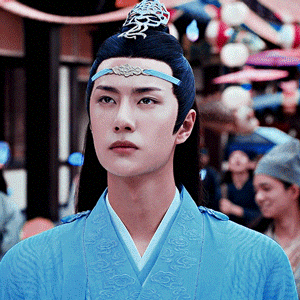
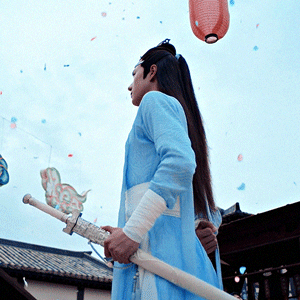
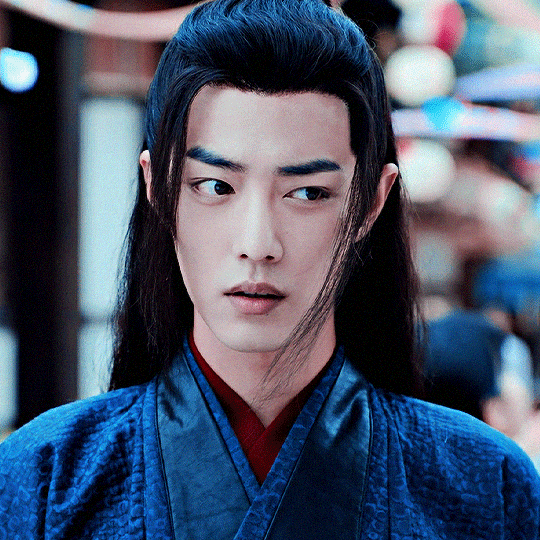
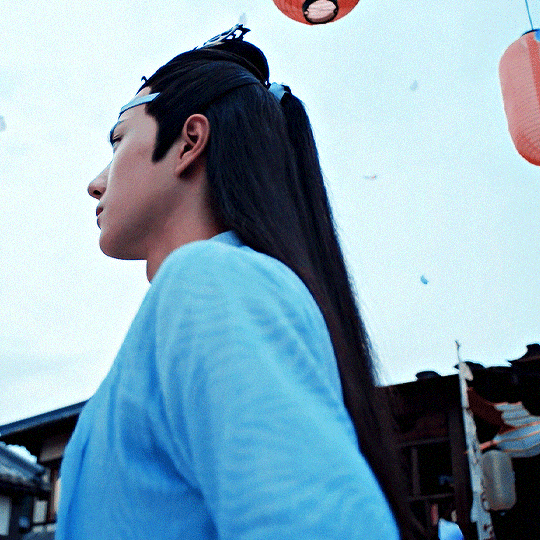
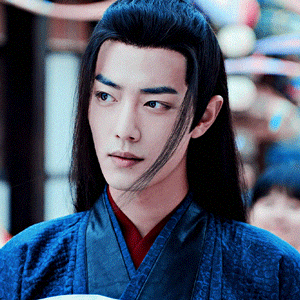

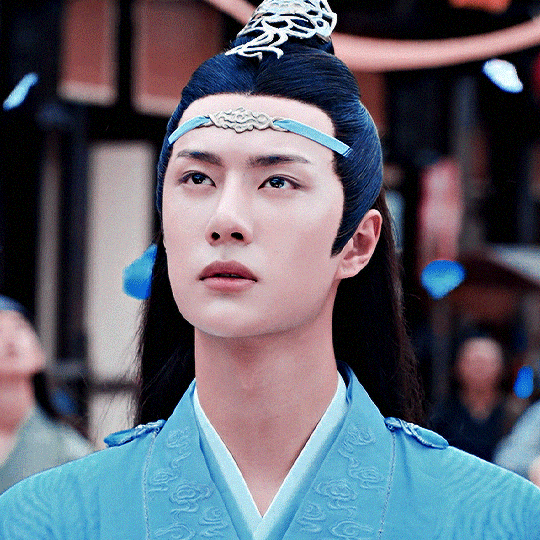

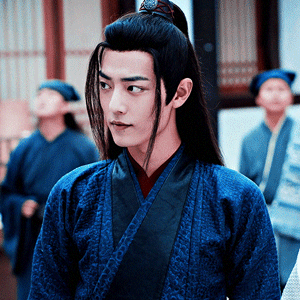
— Second Young Master Lan is nothing but an unparalleled, gorgeous, and elegant gentleman.
— I agree.
838 notes
·
View notes
Photo
I love how given the choice between his own sword Bichen and Wei Ying's sword Suiban...Lan zhan would always pick Wei Ying's Suiban



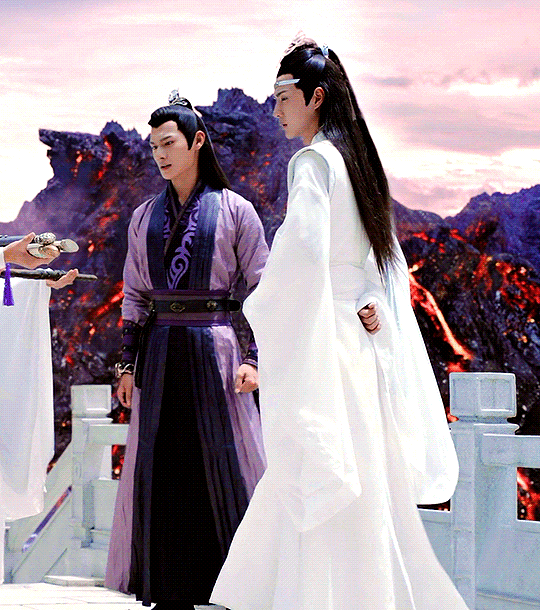
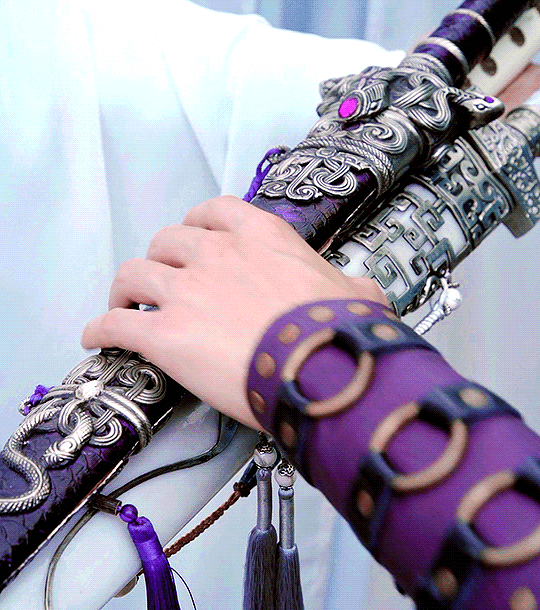

thirty-one days of jiujiu(ly) — day twenty
+ with bonus lan wangji !
#lan wangji#wangxain#wangxian#wei ying#weiwuxian#weiying#mdzs fandom#mdzs lwj#mdzsnet#mdzs#mdzs novel#theuntamededit#mdzsedit#dailyuntamed#mxtxnet#the untamed#cqledit#jiang cheng#hanguang jun#sandu shengshou#lan zhan#rs: looking for someone#untamed fandom#untamed fanart#mo dao su zhi#mo xiang tong xiu
1K notes
·
View notes
Link
Chapters: 3/?
Fandom: 魔道祖师 - 墨香铜臭 | Módào Zǔshī - Mòxiāng Tóngxiù, 魔道祖师 | Módào Zǔshī (Cartoon), 陈情令 | The Untamed (TV), 陈情令 | The Untamed (TV) RPF
Rating: Mature
Warnings: Creator Chose Not To Use Archive Warnings
Relationships: Lán Zhàn | Lán Wàngjī/Wèi Yīng | Wèi Wúxiàn, Jiāng Chéng | Jiāng Wǎnyín & Wèi Yīng | Wèi Wúxiàn, Jīn Líng | Jīn Rúlán & Wèi Yīng | Wèi Wúxiàn, Lán Huàn | Lán Xīchén & Lán Zhàn | Lán Wàngjī, Lán Huàn | Lán Xīchén & Wèi Yīng | Wèi Wúxiàn, Niè Huáisāng & Wèi Yīng | Wèi Wúxiàn, Lán Yuàn | Lán Sīzhuī & Lán Zhàn | Lán Wàngjī, Lán Yuàn | Lán Sīzhuī & Wèi Yīng | Wèi Wúxiàn, Jīn Líng | Jīn Rúlán/Lán Yuàn | Lán Sīzhuī, Jīn Líng | Jīn Rúlán & Lán Jǐngyí & Lán Yuàn | Lán Sīzhuī & Ōuyáng Zǐzhēn, Wèi Yīng | Wèi Wúxiàn/Wēn Níng | Wēn Qiónglín
Characters: Wèi Yīng | Wèi Wúxiàn, Lán Zhàn | Lán Wàngjī, Lán Huàn | Lán Xīchén, Jiāng Chéng | Jiāng Wǎnyín, Jīn Líng | Jīn Rúlán, Lán Yuàn | Lán Sīzhuī, Lán Jǐngyí, Lán Qǐrén, Niè Huáisāng, Ōuyáng Zǐzhēn, Wēn Níng | Wēn Qiónglín, Gūsū Lán Disciple(s) (Módào Zǔshī), Gūsū Lán Elders (Módào Zǔshī), Yúnmèng Jiāng Disciple(s) (Módào Zǔshī), Yúnmèng Siblings (Módào Zǔshī), Jiāng Yànlí, Jīn Zǐxuān
Additional Tags: Siblings, Soulmates, Jealous Lán Zhàn | Lán Wàngjī, Possessive Lán Zhàn | Lán Wàngjī, Protective Lán Zhàn | Lán Wàngjī, True Love, Top Lán Zhàn | Lán Wàngjī/Bottom Wèi Yīng | Wèi Wúxiàn, Yílíng Lǎozǔ Wèi Yīng | Wèi Wúxiàn, Oblivious Wèi Yīng | Wèi Wúxiàn, Lán Zhàn | Lán Wàngjī/Wèi Yīng | Wèi Wúxiàn Get a Happy Ending, POV Lán Zhàn | Lán Wàngjī, Hurt Wèi Yīng | Wèi Wúxiàn, Jiāng Chéng | Jiāng Wǎnyín & Wèi Yīng | Wèi Wúxiàn Reconciliation, POV Wèi Yīng | Wèi Wúxiàn, Pining Lán Zhàn | Lán Wàngjī, Married Lán Zhàn | Lán Wàngjī/Wèi Yīng | Wèi Wúxiàn, Married Life, Married Sex, Rough Sex, Lán Zhàn | Lán Wàngjī Has a Biting Kink, Stalking, Obsession, Evil, Implied/Referenced Rape/Non-con, Post-Canon, Protective Jiāng Chéng | Jiāng Wǎnyín, Yúnmèng Jiāng Sect (Módào Zǔshī), Gūsū Lán Sect Rules (Módào Zǔshī), Gūsū Lán Juniors Dynamics (Módào Zǔshī), Gūsū Lán Elders Bashing (Módào Zǔshī), Protective Lán Yuàn | Lán Sīzhuī, Protective Lán Xīchén, Supportive Lán Huàn | Lán Xīchén, Lán Qǐrén Tries, Suffering Lán Qǐrén, Lán Huàn | Lán Xīchén Needs a Hug, Lán Huàn | Lán Xīchén & Wèi Yīng | Wèi Wúxiàn Friendship, Niè Huáisāng & Wèi Yīng | Wèi Wúxiàn Friendship, Scheming Niè Huáisāng, Mentioned Junior Quartet (Módào Zǔshī)
Summary:
Post cannon of the novel Mo Dao Zu Shi.
Wei Wuxian and Lan Zhan are happily married for 6 months.Yet there is a darkness creeping in on the horizon. A stranger lurking in the shadows. He is being stalked. He is being hunted. He is being lured and seduced. Can Lan Zhan protect him? Can the people who love him save him in time? Is there a new evil threatening their cultivation world once again?
2 notes
·
View notes
Link
Chapters: 3/?
Fandom: 魔道祖师 - 墨香铜臭 | Módào Zǔshī - Mòxiāng Tóngxiù, 魔道祖师 | Módào Zǔshī (Cartoon), 陈情令 | The Untamed (TV), 陈情令 | The Untamed (TV) RPF
Rating: Mature
Warnings: Creator Chose Not To Use Archive Warnings
Relationships: Lán Zhàn | Lán Wàngjī/Wèi Yīng | Wèi Wúxiàn, Jiāng Chéng | Jiāng Wǎnyín & Wèi Yīng | Wèi Wúxiàn, Jīn Líng | Jīn Rúlán & Wèi Yīng | Wèi Wúxiàn, Lán Huàn | Lán Xīchén & Lán Zhàn | Lán Wàngjī, Lán Huàn | Lán Xīchén & Wèi Yīng | Wèi Wúxiàn, Niè Huáisāng & Wèi Yīng | Wèi Wúxiàn, Lán Yuàn | Lán Sīzhuī & Lán Zhàn | Lán Wàngjī, Lán Yuàn | Lán Sīzhuī & Wèi Yīng | Wèi Wúxiàn, Jīn Líng | Jīn Rúlán/Lán Yuàn | Lán Sīzhuī, Jīn Líng | Jīn Rúlán & Lán Jǐngyí & Lán Yuàn | Lán Sīzhuī & Ōuyáng Zǐzhēn, Wèi Yīng | Wèi Wúxiàn/Wēn Níng | Wēn Qiónglín
Characters: Wèi Yīng | Wèi Wúxiàn, Lán Zhàn | Lán Wàngjī, Lán Huàn | Lán Xīchén, Jiāng Chéng | Jiāng Wǎnyín, Jīn Líng | Jīn Rúlán, Lán Yuàn | Lán Sīzhuī, Lán Jǐngyí, Lán Qǐrén, Niè Huáisāng, Ōuyáng Zǐzhēn, Wēn Níng | Wēn Qiónglín, Gūsū Lán Disciple(s) (Módào Zǔshī), Gūsū Lán Elders (Módào Zǔshī), Yúnmèng Jiāng Disciple(s) (Módào Zǔshī), Yúnmèng Siblings (Módào Zǔshī), Jiāng Yànlí, Jīn Zǐxuān
Additional Tags: Siblings, Soulmates, Jealous Lán Zhàn | Lán Wàngjī, Possessive Lán Zhàn | Lán Wàngjī, Protective Lán Zhàn | Lán Wàngjī, True Love, Top Lán Zhàn | Lán Wàngjī/Bottom Wèi Yīng | Wèi Wúxiàn, Yílíng Lǎozǔ Wèi Yīng | Wèi Wúxiàn, Oblivious Wèi Yīng | Wèi Wúxiàn, Lán Zhàn | Lán Wàngjī/Wèi Yīng | Wèi Wúxiàn Get a Happy Ending, POV Lán Zhàn | Lán Wàngjī, Hurt Wèi Yīng | Wèi Wúxiàn, Jiāng Chéng | Jiāng Wǎnyín & Wèi Yīng | Wèi Wúxiàn Reconciliation, POV Wèi Yīng | Wèi Wúxiàn, Pining Lán Zhàn | Lán Wàngjī, Married Lán Zhàn | Lán Wàngjī/Wèi Yīng | Wèi Wúxiàn, Married Life, Married Sex, Rough Sex, Lán Zhàn | Lán Wàngjī Has a Biting Kink, Stalking, Obsession, Evil, Implied/Referenced Rape/Non-con, Post-Canon, Protective Jiāng Chéng | Jiāng Wǎnyín, Yúnmèng Jiāng Sect (Módào Zǔshī), Gūsū Lán Sect Rules (Módào Zǔshī), Gūsū Lán Juniors Dynamics (Módào Zǔshī), Gūsū Lán Elders Bashing (Módào Zǔshī), Protective Lán Yuàn | Lán Sīzhuī, Protective Lán Xīchén, Supportive Lán Huàn | Lán Xīchén, Lán Qǐrén Tries, Suffering Lán Qǐrén, Lán Huàn | Lán Xīchén Needs a Hug, Lán Huàn | Lán Xīchén & Wèi Yīng | Wèi Wúxiàn Friendship, Niè Huáisāng & Wèi Yīng | Wèi Wúxiàn Friendship, Scheming Niè Huáisāng, Mentioned Junior Quartet (Módào Zǔshī)
Summary:
Post cannon of the novel Mo Dao Zu Shi.
Wei Wuxian and Lan Zhan are happily married for 6 months.Yet there is a darkness creeping in on the horizon. A stranger lurking in the shadows. He is being stalked. He is being hunted. He is being lured and seduced. Can Lan Zhan protect him? Can the people who love him save him in time? Is there a new evil threatening their cultivation world once again?
#wangxain#ao3#ao3 author#author#mo dao zu shi#untamed fanfiction#fanfic#mdzs fanfiction#mdzs#mdzsnet#mdzs fandom#weiwuxian#lan wangji#lanwangji#weiying#wei ying#transformativefiction#writers on tumblr#writersofindia#my writing#my fanfic stuff#ao3mdzs#mdzs novel#untamed cast#wang yibo#xiao zhan#writersociety#writerscircle#writerblr#writerslife
2 notes
·
View notes
Note
Just wanted to tell you that youre exceptional sweet girl who deserves all the best in the world. Hope good times will come to you as soon as possible 🤍
🥺💛🌻
4 notes
·
View notes
Text
Wang Yibo - One and Only (movie) behind the scenes ; headstand and spin
The short two-second shot is a constant practice, falling down and getting up again
161 notes
·
View notes
Text
Love it when baymax simply says "oh no". Cause that's a mood pretty much 70% of the time lol
8K notes
·
View notes
Text
OK so I am huge fan of Wang Yibo and Xiao Zhan. (I ship them) I love the song that DD sang for GG. Nanhai. But personally found it too sad. The ending...so I rewrote the ending. Changed words. The took help of the existing English translation of the song..and changed words to suit them. And give them hope. I am not Chinese so please forgive me if I stray away from the whole meaning of the song. I listened to the music while writing it..so the words chosen suits the beat. Any one who is into making covers and can sing and produce them and want to collab or use this version of words please contact me or at least give credit. I would love to hear this words with music exist. Yizhan needs to hear this. Wish my voice was good enough to sing😛.
That Boy (Nanhai)
Once, I was Surprised
That we would fall in love
Back in those day we didn’t think twice
Thought, we had a bond
So we loved too deeply
A pair of hands held so tight
Striving for the hope in our hearts…mm mm
Oh I can’t forget your love
But the end hasn’t arrived
Oh I couldn’t make you stay
Not like him
Who could give you the life that you finally deserve
Well I…
I am that childish boy
Ooh ooh ooh …ooh hmm
Your tender love
Is always by my side
Only felt when no one’s around.
Could I ask if you are no longer so sad?
Has the sunlight finally fallen across the sea?
Like the colors painted from my heart
May you smile, May you always be brave
But I can’t forget your love
Yet,the end hasn’t arrived
Oh I couldn’t make you stay
Not like him
Who could give you the life that you finally deserve
Well I…
I am that childish boy
Ooh ooh ooh …hey yeah yeah
Missing you right now
Thinking of you every time I wander
Have no regrets in this lonely life
No love can escape the pain.
But I Still try
Coz I am that Childish boy
Ooh ooh oh hoo
Ahh ah
Nana nanan na
As for me
I can only wait
Coz my love would be back
Since we have all the time
Ooh ooh hoo
********
Original song with the available English translation.
Can anyone sing this on that beat with my lyrics?
Contact me
youtube
#yizhan#xiao zhan#wang yibo#the untamed#untamed fanart#untamed bts#untamed fanfiction#yizhanfanart#wang yibo fanart#xiao zhan fanart#untamed fandom#poets on tumblr#music#chinese pop#cpop#lyric posting#Youtube#bjyx#bjyxszd#cql#wangxian#lan wangji#wei wuxian#lan zhan#wei ying#cql fanart#cqledit
20 notes
·
View notes
Text
A GUIDE TO CHINESE TERMINOLOGY
So, I have these little guides that are included in every Mo Xiang Tong Xiu novel and I've decided to compile some of the general things into a single post for those who aren't familiar with Chinese culture. This'll mostly be taken directly from the guides themselves, but I'll still add things where necessary.
BASIC TERMS
Not included in the guides, but I thought it'd be nice to start with some basic Mandarin terms first.
Hello: 你好 – nǐ hǎo
I am: 我是 – wǒ shì
How are you?: 你好吗 – nǐ hǎo ma
Nice to meet you: 很高兴认识你 – hěn gāo xìng rèn shi nǐ
What is your name?: 你叫什么名字 – nǐ jiào shén me míng zì?
My name is: 我叫 – wǒ jiào
Goodbye: 再见 – zài jiàn
Please: 请 – qǐng
Thank you: 谢谢 – xiè xiè
You’re welcome: 不客气 – bú kè qì
I’m sorry: 对不起 – duì bu qǐ
Excuse me: 打扰一下 – dǎ rǎo yí xià
Yes: 是 – shì
No: 不是 – bù shì
NAMES
So as we all know, in many Asian countries, it's last name, first name (as opposed to most Western countries, where it's first name, last name). But for anyone who wants to write a fic set in Ancient China or is only just getting into wuxia and xianxia, I think it'd be useful to at least know of courtesy names.
A courtesy name is given to an individual when they come of age. Traditionally, this was at the age of twenty during one's crowning ceremony*, but can also be presented when an elder or teacher deems the recipient worthy. Generally a male-only tradition, there is historical precedent for women adopting a courtesy name after marriage. Courtesy names were a tradition reserved for the upper class.
It was considered disrespectful for one's peers of the same generation to address someone by their birth name, especially in formal or written communication. Use of one's birth name was reserved for only elders, close friends, and spouses.
This practice is no longer used in modern China, but it was a tradition throughout some parts of Chinese history for all children of a family within a certain generation to have given names with the same first and last character. This "generation name" may be taken from a certain poem, with successive generations using successive characters from the poem.
*Crowning ceremony, or Guan Li (冠禮), is a coming-of-age ceremony.
Next, nicknames! Here are just a few.
Xiao (小), meaning little. Always a prefix.
A (阿), a friendly diminutive and also always a prefix. Usually for monosyllabic names, or one syllable out of a two-syllable name.
Er (兒), meanwhile, is always a suffix, used to mean son or child. Added to a name, it expresses affection.
Doubling a syllable of a person’s name can also be a nickname, and has childish or cutesy connotations.
FAMILY
In contrast to, say, English-speaking countries, China has many names to refer to different family members. For example, an aunt usually refers to the sister of your parent, but in China, there are different words to distinguish between maternal and paternal aunt.
And it's alot!
Combining them, here's what's included in the guides for all three books:
DI: Younger brother or younger male friend. Can be used alone or as an honorific.
DIDI: Younger brother or a younger male friend. Casual.
GE: Familiar way to refer to an older brother or older male friend, used by someone substantially younger or of lower status. Can be used alone or with the person’s name.
GEGE: Familiar way to refer to an older brother or an older male friend, used by someone substantially younger or of lower status. Has a cutesier feel than “ge.”
JIE: Older sister or older female friend. Can be used alone or as an honorific.
JIEJIE: Familiar way to refer to an older sister or an older female friend, used by someone substantially younger or of lower status. Has a cutesier feel than “jie,” and rarely used by older males.
JIUJIU: Uncle (maternal, biological).
MEI: Younger sister or younger female friend. Can be used alone or as an honorific.
MEIMEI: Younger sister or an unrelated younger female friend. Casual.
SHUFU: Uncle (paternal, biological). Formal address for one’s father’s younger brother.
SHUSHU: An affectionate version of “Shufu.”
XIAOSHU: Little uncle.
XIONG: Older brother. Generally used as an honorific. Formal, but also used informally between male friends of equal status.
XIONGZHANG: Eldest brother or oldest male friend. Very formal.
XIANSHENG: “Husband” or “Mister” in modern usage; historical usage was broadly “teacher.”
YIFU: Maternal uncle, respectful address.
YIMU: Maternal aunt, respectful address.
If multiple relatives in the same category are present (multiple older brothers, for example) everyone is assigned a number in order of birthdate, starting with the eldest as number one, the second oldest as number two, etc. These numbers are then used to differentiate one person from another. This goes for all of the categories above, whether it’s siblings, cousins, aunts, uncles, and so on.
EXAMPLES: If you have three older brothers, the oldest would be referred to as da-ge, the second oldest er-ge, and the third oldest san-ge. If you have two younger brothers, you (as the oldest) would be number one. Your second-youngest brother would be er-di, and the youngest of your two younger brothers would be san-di.
Cousins are also be referred to as brothers or sisters in familial address.
And, thanks to this one site I found, here's the rest of it!

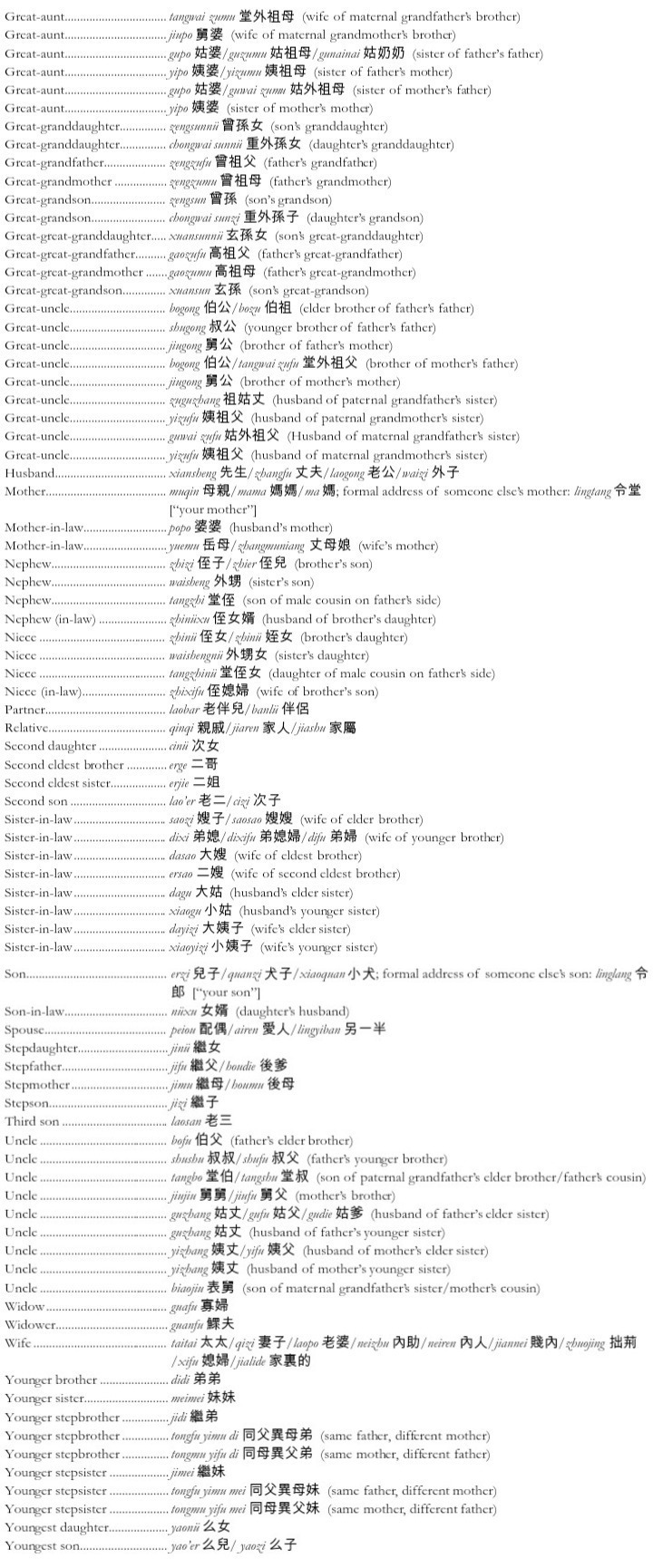
To quote Nie Huaisang:
"Differentiating between all the direct bloodlines, the collateral bloodlines, head family or branch family—juniors from prominent clans like us can’t even get our own relatives straight! Any relatives twice removed, we just call them aunts and uncles or whatever.[...]"
And since this whole post was inspired by MXTX, I thought I might as well include the terminology used for the sects as well (especially for those who are just getting into wuxia or xianxia anyway), but these terms can also be used within any group in general.
SECT: A sect is an organization of individuals united by their dedication to the practice of a particular method of cultivation or martial arts. A sect may have a signature style. Sects are led by a single leader, who is supported by senior sect members. They are not necessarily related by blood.
ZHANGMEN: Leader of a cultivation/martial arts sect.
SHIZUN: Teacher/master. For one’s master in one’s own sect. Gender neutral. Literal meaning is “honored/venerable master” and is a more respectful address.
SHIFU: Teacher/master. For one’s master in one’s own sect. Gender neutral. Mostly interchangeable with Shizun.
SHINIANG: The wife of a shifu/shizun.
SHIXIONG: Older martial brother. For senior male members of one’s own sect.
SHIJIE: Older martial sister. For senior female members of one’s own sect.
SHIDI: Younger martial brother. For junior male members of one’s own sect.
SHIMEI: Younger martial sister. For junior female members of one’s own sect.
SHISHU: The younger martial sibling of one’s master. Can be male or female.
SHIBO: The older martial sibling of one’s master. Can be male or female.
SHIZHI: The disciple of one’s martial sibling.
SWORN FAMILIES: In China, sworn families describes a binding social pact made by two or more unrelated individuals of the same gender. It can be entered into for social, political, and/or personal reasons and is not only limited to two participants; it can extend to an entire group. It was most common among men, but was not unheard of among women or between people of different genders.
The participants treat members of each other’s families as their own and assist them in the ways an extended family would: providing mutual support and aid, support in political alliances, etc. Sworn siblinghood, where individuals will refer to themselves as brother or sister, is not to be confused with familial relations like blood siblings or adoption. It is sometimes used in Chinese media, particularly danmei, to imply romantic relationships that could otherwise be prone to censorship.
This Twitter thread describes it more in depth:


GENERAL CONSONANTS AND VOWELS
X: similar to English sh (sheep)
Q: similar to English ch (charm)
C: similar to English ts (pants)
IU: yoh
UO: wuh
ZHI: jrr
CHI: chrr
SHI: shrr
RI: rrr
ZI: zzz
CI: tsz
SI: ssz
U: When u follows a y, j, q, or x, the sound is actually ü, pronounced like eee with your lips rounded like ooo. This applies for yu, yuan, jun, etc.
COLORS
WHITE: Death, mourning, purity. Used in funerals for both the deceased and mourners.
BLACK: Classy, scholarly. Considered masculine, representing the Heavens and the dao.
RED: Happiness, good luck. Used for weddings.
YELLOW/GOLD: Wealth and prosperity, and often reserved for the emperor.
BLUE/GREEN: Health, prosperity, and harmony.
PURPLE: Divinity and immortality.
NUMBERS
TWO: Two ( 二 / “er”) is considered a good number and is referenced in the common idiom “good things come in pairs.” It is common practice to repeat characters in pairs for added effect.
THREE: Three ( 三 / “san”) sounds like sheng ( 生 / “living”) and also like san ( 散 / “separation”).
FOUR: Four ( 四 / “si”) sounds like si ( 死 / “death”). A very unlucky number.
SEVEN: Seven ( 七 / “qi”) sounds like qi ( 齊 / “together”), making it a good number for love-related things. However, it also sounds like qi ( 欺 / “deception”).
EIGHT: Eight ( 八 / “ba”) sounds like fa ( 發 / “prosperity”), causing it to be considered a very lucky number.
NINE: Nine ( 九 / “jiu”) is associated with matters surrounding the Emperor and Heaven, and is as such considered an auspicious number.
TIME
Days were split into twelve intervals of two hours apiece called shichen ( 时辰 / “time”). Each of these shichen has an associated term. Pre-Han dynasty used semi-descriptive terms, but in Post-Han dynasty, the shichen were renamed to correspond to the twelve zodiac animals.
ZI, MIDNIGHT: 11pm - 1am
CHOU: 1am - 3am
YIN: 3am - 5am
MAO, SUNRISE: 5am - 7am
CHEN: 7am - 9am
SI: 9am - 11am
WU, NOON: 11am - 1pm
WEI: 1pm - 3pm
SHEN: 3pm - 5pm
YOU, SUNSET: 5pm - 7pm
XU, DUSK: 7pm - 9pm
HAI: 9pm - 11pm
A common way to tell time in Ancient China was incense time, referring to how long it takes for a single incense stick to burn. Standardized incense sticks were manufactured and calibrated for specific time measurements: a half hour, an hour, a day, etc. These were available to people of all social classes. A single incense time is usually about thirty minutes.
THE FIVE ELEMENTS
Also known as the wuxing ( 五行 / “Five Phases”). Rather than Western concepts of elemental magic, Chinese phases are more commonly used to describe the interactions and relationships between things. The phases can both beget and overcome each other.
Wood ( 木 / mu)
Fire ( 火 / huo)
Earth ( 土 / tu)
Metal ( 金 / jin)
Water ( 水 / shui)
YIN AND YANG
Yin and yang is a concept in Chinese philosophy that describes the complementary interdependence of opposite/contrary forces. It can be applied to all forms of change and differences. Yang represents the sun, masculinity, and the living, while yin represents the shadows, femininity, and the dead, including spirits and ghosts. In fiction, imbalances between yin and yang energy can do serious harm to the body or act as the driving force for malevolent spirits seeking to replenish themselves of whichever they lack.
RELIGION AND PHILOSOPHY
BUDDHISM: The central belief of Buddhism is that life is a cycle of suffering and rebirth, only to be escaped by reaching enlightenment (nirvana). Buddhists believe in karma, that a person’s actions will influence their fortune in this life and future lives. The teachings of the Buddha are known as The Middle Way and emphasize a practice that is neither extreme asceticism nor extreme indulgence.
CONFUCIANISM: Confucianism is a philosophy based on the teachings of Confucius. Its influence on all aspects of Chinese culture is incalculable. Confucius placed heavy importance on respect for one’s elders and family, a concept broadly known as xiao ( 孝 / “filial piety”). The family structure is used in other contexts to urge similar behaviors, such as respect of a student towards a teacher, or people of a country towards their ruler.
DAOISM: Daoism is the philosophy of the dao ( 道 / “the way”) Following the dao involves coming into harmony with the natural order of the universe, which makes someone a “true human,” safe from external harm and who can affect the world without intentional action.
Feng shui ( 風水 / “wind-water”) is a Daoist practice centered around the philosophy of achieving spiritual accord between people, objects, and universe at large. Practitioners usually focus on positioning and orientation, believing this can optimize the flow of qi (the energy in all living things) in their environment. Having good feng shui means being in harmony with the natural order.
REALMS
It's traditionally believed that the universe is divided into Three Realms: the Heavenly Realm, the Mortal Realm, and the Ghost Realm. The Heavenly Realm refers to the Heavens and Celestial Court, where gods reside and rule, the Mortal Realm refers to the human world, and the Ghost Realm refers to the realm of the dead.
Based on a combination of Buddhist, Daoist, and traditional Chinese beliefs, Diyu ( 地狱 , “earth prison”) refers to an afterlife in Chinese theology where evil humans are punished after death, similar to the Western concept of hell. Sinners deserving punishment are sent to one of the eighteen levels of Diyu, where they receive the appropriate torture for their crimes.
CREATURES
DEMONS: A race of immensely powerful and innately supernatural beings. They are almost always aligned with evil.
DRAGONS: Great chimeric beasts who wield power over the weather. Chinese dragons differ from their Western counterparts as they are often benevolent, bestowing blessings and granting luck. They are associated with the Heavens, the Emperor, and yang energy.
GHOSTS: Ghosts ( 鬼 ) are the restless spirits of deceased sentient creatures. Ghosts produce yin energy and crave yang energy.
FESTIVALS
China has several festivals that are celebrated throughout the year in accordance to the Chinese calendar. Some of these include:
LUNAR NEW YEAR: Also called Chinese New Year or the Spring Festival, it lasts for seven days, customs include making offerings to the ancestors, putting up red decorations and giving red envelopes filled with money, setting off fireworks and firecrackers, and watching the lion and dragon dances.
SHANGYUAN FESTIVAL: Celebrated two weeks after the Lunar Festival, the Shangyuan Festival, or Lantern Festival, marks the first full moon of the New Year. Customs include lighting and watching lanterns, answering lantern riddles, eating tangyuan, and watching dragon and lion dances.
QINGMING FESTIVAL: Also known as Tomb-Sweeping Day, Qingming is exactly as it sounds like, a day for honoring the ancestors by tomb sweeping. Other customs include placing willow branches at in front of doors and gates, outings, and kite flying. Food depends on the location, but some traditional ones include sweet green rice balls, peach blossom porridge, crispy cakes, Qingming snails, and eggs.
DRAGON BOAT FESTIVAL: This festival has a few different origins, with one of the most popular ones being related to the death of the poet Qu Yuan, who (tw: mention of suicide) tried to drown himself in a river. Many people rushed to the boats to find him or at least retrieve his body, and when they couldn't find him, they threw balls of sticky rice (zongzi) into the water in hopes the fish would eat them and not what remained of the poet. Since then, customs have included dragon boat racing and making zongzi, as well as driving disease away.
QIXI FESTIVAL: The Chinese equivalent of Valentine's Day, Qixi is celebrated in honor of the cowherd Niulang (Altair) and the weaver Zhinü (Vega), two lovers who were separated by a river of stars and are only allowed to meet on this day, after a bridge of magpies has formed. Traditional customs worshiping the celestials, girls praying for a good spouse and dexterity, and eating qiaoguao.
These days, Valentine's Day is celebrated due to the West's influence, but there are still some differences. Rather than giving each other gifts, only one person will be doing the gift-giving and then they'll receive their gift a month later on White Day. This holiday originated in Japan, but has spread to some Asian countries, including China.
ZHONGYUAN FESTIVAL: Also known as the Hungry Ghost Festival, it's believed that the ancestors roam the living world for an entire month. To avoid the wrath of ghosts, ceremonies include setting ancestral tablets, paintings, and photographs on a table, burning incense, and preparing food three times that day.
MID-AUTUMN FESTIVAL: Celebrated in honor of the moon goddess Chang'e, the Mid-Autumn Festival is a time for togetherness. Customs include eating mooncakes, paying tribute to the Moon, and making lanterns.
CHONGYANG FESTIVAL: Also called the Double Ninth Festival, legend has it that a devil was terrorizing a village by spreading disease, until he was challenged by a man called Huan Jing, who led his fellow villagers up a mountain while each held pieces of dogwood leaves and cups of chrysanthemum wine and later won. As such, customs include climbing mountains and drinking chrysanthemum wine, as well as eating Chongyang cakes.
OTHER CUSTOMS
FUNERALS: Daoist or Buddhist funerals generally last for forty-nine days. During the funeral ceremony, mourners can present the deceased with offerings of food, incense, and joss paper. If deceased ancestors have no patrilineal descendants to give them offerings, they may starve in the afterlife and become hungry ghosts. Wiping out a whole family is punishment for more than just the living.
After the funeral, the coffin is nailed shut and sealed with paper talismans to protect the body from evil spirits. The deceased is transported in a procession to their final resting place, often accompanied by loud music to scare off evil spirits. Cemeteries are often on hillsides; the higher a grave is located, the better the feng shui. The traditional mourning color is white.
WEDDINGS: A marriage in China is not only regarded as a union between spouses, but a union between the families as well, and have sometimes been pre-arranged. In ancient tradition, pre-wedding customs consist of three letters and six etiquettes, or six procedures.
The Betrothal Letter (pìn shū) is a contract between the families; the Gift Letter (lǐ shū) is a list of gifts that come with the bride’s dowry (jià zhuāng), and finally, the Wedding Letter (yíng qīn shū) welcomes the bride into her new husband’s home, where the ceremony would usually take place.
The six etiquettes include making a proposal of marriage via a matchmaker (nacai), requesting the bride's name and date of birth (wenming), sending news of divination results and betrothal gifts (naji), sending wedding presents to the bride's house (nazheng), requesting the date of the wedding (qingqi), and fetching in the bride in person (qinying).
Traditionally, the bride cries to show reluctance before leaving her old home in a sedan, while the groom travels to get her, but must prove he's worthy of her hand along the way; usually these consist of the bride's family asking him questions to see how well he knows her.
Once at the groom's house, the bowing ceremony will commence, with the couple bowing to the heavens, their parents, and then to each other. From there, they enter the bridal chamber to consummate the marriage.
Afterwards, two banquets are held: the primary banquet is hosted once at the bride's side, and a second, smaller banquet at the groom's. They usually include nine to ten courses. Gifts are also usually given out to the guests, such as money packets.
The traditional wedding color is red.
OTHER RESOURCES
To learn more about the Chinese language, I highly recommend checking out these sites as references. I also recommend this book on Chinese names, with this article more or less being a preview of it. And just for fun, here's a Reedsy generator.
I'll be updating this on occasion, but for now, here ya go! Hope this helps anyone who needs it! Please let me know in my inbox if I made a mistake or want me to add anything specific.
939 notes
·
View notes
Text
Loss; 13 years
Lan Wangji is no stranger to grief and loss. His first encounter with death was at 6, when he lost his mom suddenly. At that time, Lan Wangji didn’t know yet what “gone” meant so he would sit outside his mom’s house, waiting for her to open the door. When he grew a little older and finally understood that his mom was never coming back, he would still visit the house (Chapter 64). In the Lotus Seedpod extra, Lan Wangji leaves a vase of lotus seed pods in front of the gentian house, seemingly sharing this little joy with his mom, and Lan Xichen is also shown to visit her from time to time.
At 17 years old, Wen Xu forced the Lan Sect to burn down the Cloud Recesses and, in the fight to save their home, Lan Wangji lost his father (Chapter 52). While not much is said about his relationship with his father, we know that Lan Wangji cared for him as he cried for him when he was trapped in the Xuanwu Cave with Wei Wuxian (Chapter 55). Once they were rescued, he refused Jiang Fengmian’s suggestion of having people scout him back to the Cloud Recesses, and went back home alone to face reality and the responsibilities that awaited him. Lan Wangji didn’t let negative feelings consume him; even if his home was destroyed by the Wens, even if he temporarily lost his brother because of them and his father was killed by them, he didn’t want revenge. Lan Wangji only moved forward.
When Wei Wuxian died, it had only been nearly three months (Chapter 79) after Lan Wangji hid Wei Wuxian in the cave, fought 33 Lan sect elders and was subsequently punished severely. Lan Wangji dragged his injured body to Burial Mounds to see things for himself (Chapter 99). For many days, he searched the mountain for Wei Wuxian’s soul and his remains but found only Wen Yuan. When he returned to Gusu, Lan Wangji bought a jar of Emperor’s Smile and got drunk for the first time. In his drunken state, he ransacked Cloud Recesses’s storage room in search of a flute and woke up with a Wen Sect brand mark on his chest, like Wei Wuxian’s (Chapter 111). For three years, he was bedridden and healing in seclusion.
At this point, the loss isn’t any less painful, but Lan Wangji already knows how to deal with grief. Just as he was able to move forward and accept his parents’ death, Lan Wangji also accepts that Wei Wuxian is gone. He keeps the things that reminds him of moments that he shared with Wei Wuxian, like Emperor’s Smile. Once recovered, he starts caring for Sizhui and his bunnies again, and guiding and teaching the other younger Lans. Lan Wangji also regains the respect of his family and his sect, as he returns to his duties and responsibilities and would once again appear ‘wherever the chaos is’ just like when he was younger. (Chapter 7)
237 notes
·
View notes















